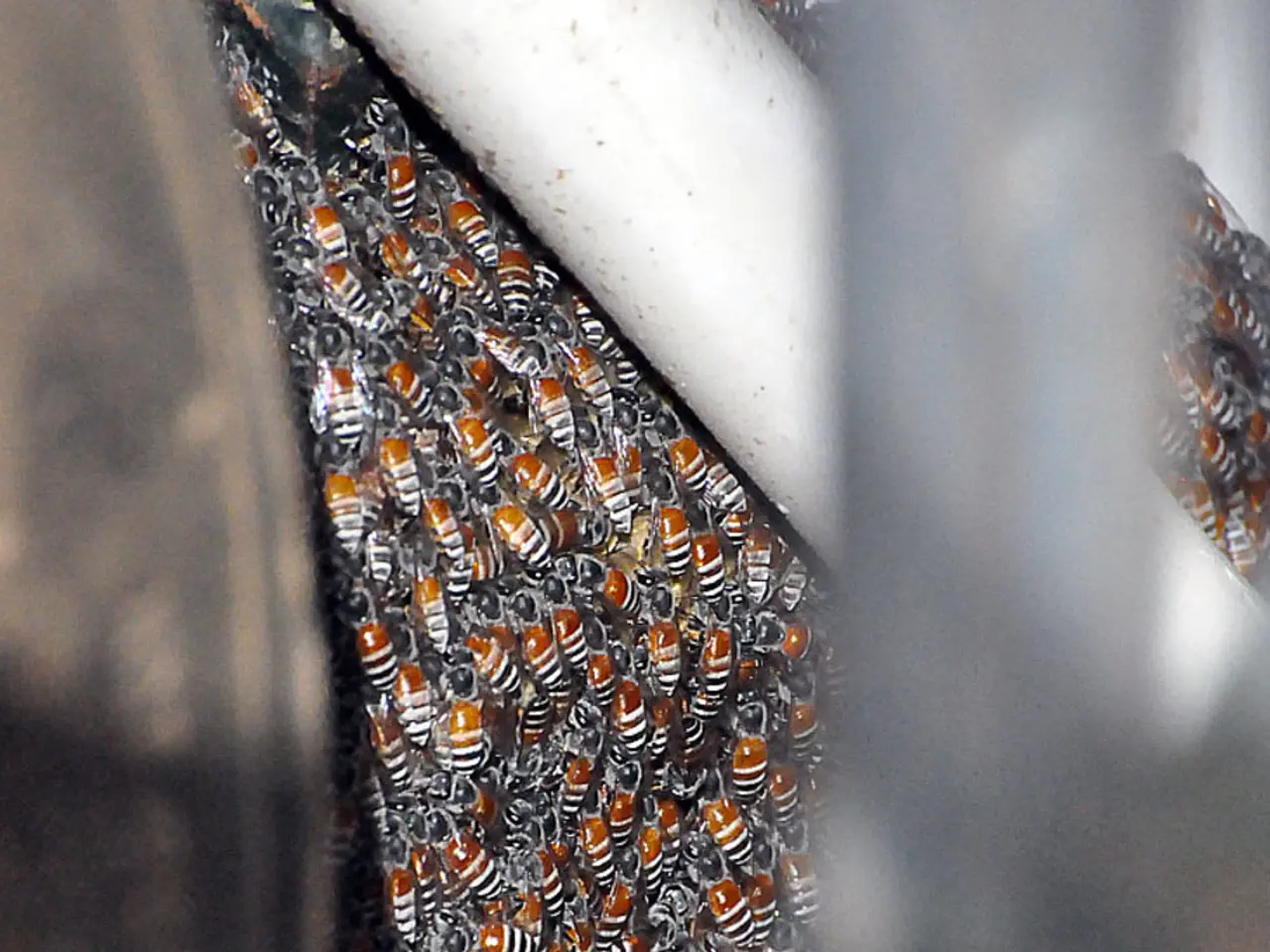Differences in "Pure" Honey: Essential Facts to Consider Prior to Your Purchase
In the world of honey, the term "raw" is often bandied about, but what does it truly mean? At our website, we believe in offering a genuine raw honey experience, one that retains the natural nutrients, enzymes, and antioxidants found in honey as it exists in the hive.
Each jar of our honey comes with a QR code for traceability, allowing you to learn about its pristine source in New Zealand. Scanning the code will take you on a journey, from the hive to your table, ensuring transparency and authenticity.
Our raw Manuka honey is created using traditional methods, avoiding unnecessary intervention. It is never exposed to high heat or excessive filtering, maintaining its natural state as close as possible. This approach is in line with The Art of Ethical Beekeeping™, a philosophy that prioritises the welfare of bees and the preservation of honey's natural properties.
Raw honey, unlike its heavily processed counterpart, retains more of its natural nutrients. These nutrients can support general wellness, digestive comfort, and help maintain immune health. The rich taste and texture of our honey come from the nutrients retained in our minimally processed honey.
However, it's important to note that the term "raw" is not strictly regulated. Some brands may label their honey as "raw" despite using heat or ultrafiltration. To ensure truly raw honey, look for mentions of unpasteurized handling, minimal filtration, and traceability to the source.
Pasteurization can damage beneficial enzymes like diastase and invertase, while ultrafiltration strips honey of its natural components like pollen and wax particles. These processes not only diminish the honey's natural health benefits but can also hide its botanical origin.
In contrast, truly raw honey is extracted directly from the hive, strained lightly to remove bits like wax or dead bees but not pasteurized or ultra-filtered. This preserves its natural composition very close to honey in the comb, including pollen grains and bioactive compounds such as polyphenols that act as antioxidants.
Our website offers a full collection and starter kits of traceable, nutrient-rich Manuka honey for consumers. Join us in embracing the power of true raw honey, and experience the difference for yourself.
[1] Bee Culture. (2021). The Art of Ethical Beekeeping™. [online] Available at: https://www.beeculture.com/the-art-of-ethical-beekeeping-tm/ [Accessed 15 Mar. 2023].
[2] Food Navigator. (2019). Ultrafiltration of honey: A growing concern for the industry. [online] Available at: https://www.foodnavigator-usa.com/Article/2019/03/11/Ultrafiltration-of-honey-A-growing-concern-for-the-industry [Accessed 15 Mar. 2023].
[3] American Beekeeping Federation. (2021). Raw Honey. [online] Available at: https://www.abfnet.org/honey/raw-honey/ [Accessed 15 Mar. 2023].
[4] National Honey Board. (n.d.). Raw Honey. [online] Available at: https://www.honey.com/education/raw-honey/ [Accessed 15 Mar. 2023].
[5] Journal of Agricultural and Food Chemistry. (2018). Antioxidant Activity of Honey and Its Relationship to Botanical Source and Processing. [online] Available at: https://pubs.acs.org/doi/10.1021/acs.jafc.7b04825 [Accessed 15 Mar. 2023].
- Embracing the lifestyle of health-and-wellness and food-and-drink enthusiasts, our website promotes the use of raw honey, a natural source of nutrients, for general wellness, digestive comfort, and immune health.
- In the world of science, the term "raw" in honey implies its minimally processed state, with the retention of enzymes, antioxidants, and pollen, which are vital for maintaining its health benefits and botanical origin.
- For those passionate about cooking, nutrition, fitness-and-exercise, and lifestyle choices, our traceable Manuka honey allows you to bring the benefits of raw, unpasteurized, and unprocessed honey into your kitchen, empowering you to create delicious, nutrient-rich meals that nourish your body from within.




